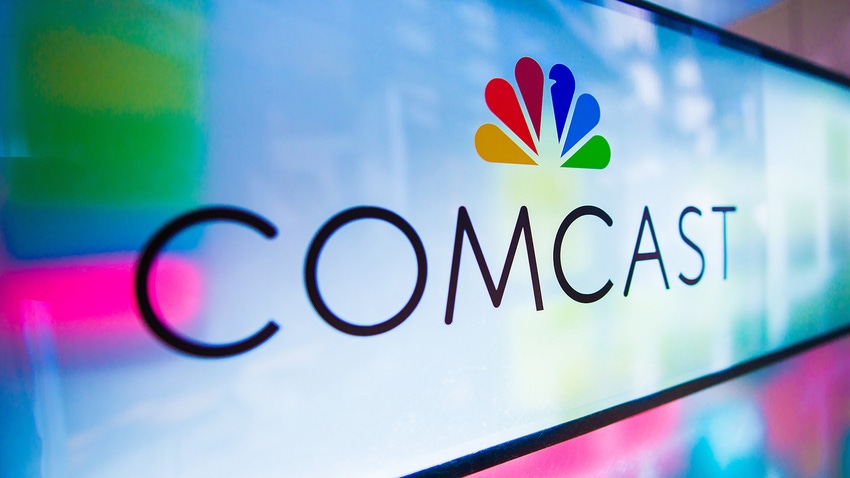Comcast lays out ACP remedies
With the Affordable Connectivity Program (ACP) nearing its likely demise, Comcast said it will offer several cost-saving home broadband, Wi-Fi and mobile programs to support its 1.4 million ACP recipients.

Comcast remains hopeful that the US government will extend the life of the Affordable Connectivity Program (ACP), but the cable operator has outlined several options should the program run out of funding and effectively shut down at the end of next month.
Comcast has about 1.4 million ACP recipients, with the majority of them being broadband customers prior to the program. That means a sizable portion of that group are using the ACP benefit to take a higher-speed tier.
But to prepare for the potential demise of the program, Comcast EVP of Public Policy and EVP of Digital Equity Broderick Johnson noted in this blog post that the operator has committed to the following:
Partial ACP credit: Comcast will provide all of its ACP recipients with a federally funded ACP credit of $14 on their bills (and $35 for those on Tribal lands) during the month of May, when the ACP benefit is only partially available.
Internet Essentials: Comcast will continue to offer Internet Essentials, a program launched back in 2011 as a commitment tied to its NBCU acquisition. Starting at $9.95 per month, Internet Essentials delivers downstream speeds up to 50 Mbit/s. All current ACP customers are eligible to switch to Internet Essentials during the transition, Johnson said.
Internet Essentials+: Comcast is also offering ACP recipients access to a faster version of the program that delivers downstream speeds up to 100 Mbit/s for $29.99 per month.
Mobile savings/free line: Comcast is also offering discounts to subs who bundle home Internet service with Xfinity Mobile. New Internet Essentials customers will have the option to get a free line of Xfinity Mobile for one year. Comcast is making the same offer to customers enrolled in ACP who add mobile service.
Wi-Fi access: Comcast has introduced NOW WiFi Pass, a service that connects subscribers to more than 23 million Xfinity Wi-Fi hotspots nationwide. Through June 30, Comcast is offering access to it for $10 per month without a contract or cancellation fees. The service allows subs to connect up to two devices at a time during a session. Comcast also made note of its Lift Zones program, which provides Wi-Fi connectivity to about 1,250 locations around the country, including various non-profit and community centers, gyms and parks.
Other programs that Johnson highlighted include Comcast's Internet Essentials Partnership Program, which helps school districts and other organizations provide funding for students and families to get home broadband, and Project UP, a $1 billion commitment focused on advancing "digital equity."
Many other US broadband operators are offering their own remedies should the ACP go away. AT&T, for example, announced last week that it will continue to offer "Access from AT&T," a plan that provides symmetrical speeds of 100 Mbit/s and Wi-Fi access for $30 per month. The company's connectivity pledge will also extend to the AT&T Prepaid and Cricket mobile services.
ACP fighting an uphill battle
Those remedies are entering the picture as ACP hangs on by a thread. But efforts to save and extend the program continue.
A $7 billion ACP extension bill is one possible option, but that effort has been stymied as House Speaker Mike Johnson (R-LA) prevents it from coming to the floor. However, Congresswoman Yvette Clarke (D-NY), who helped lead the extension bill, just filed a discharge petition to reach the floor without a green light from Johnson.
New Street Research analyst and former FCC official Blair Levin isn't optimistic that Clarke's effort will succeed, because discharge petitions "are rarely successful."
"Members tend to be more partisan on the procedural matters than the substantive ones as leadership cares more about the procedural ones, as process is the real source of their power," he explained in a research note issued Thursday morning. "Crossing party lines on a procedural matter, like a discharge petition, may therefore prove more costly to a member than crossing party lines on a substantive matter."
Citing data from the Congressional Research Service (CRS), Levin points out that of the 221 petitions in recently history, just 22 have resulted in floor consideration of the measure, and only two discharge petitions have resulted in new laws since 1993.
On top of that, he believes Republicans will want to see the resolution of the Ukraine aid bill before signing on to an ACP discharge petition.
"Given the number of supporters on both sides of the aisle, it is possible that [Rep.] Clarke could get the necessary 218 signatures for a discharge petition, but institutional incentives and history suggest she will face an uphill battle to succeed," Levin explained.
A push is also underway to broaden the Universal Service Fund's contribution base and roll the ACP into the Lifeline benefit.
Read more about:
ACPAbout the Author(s)
You May Also Like





.jpg?width=300&auto=webp&quality=80&disable=upscale)






